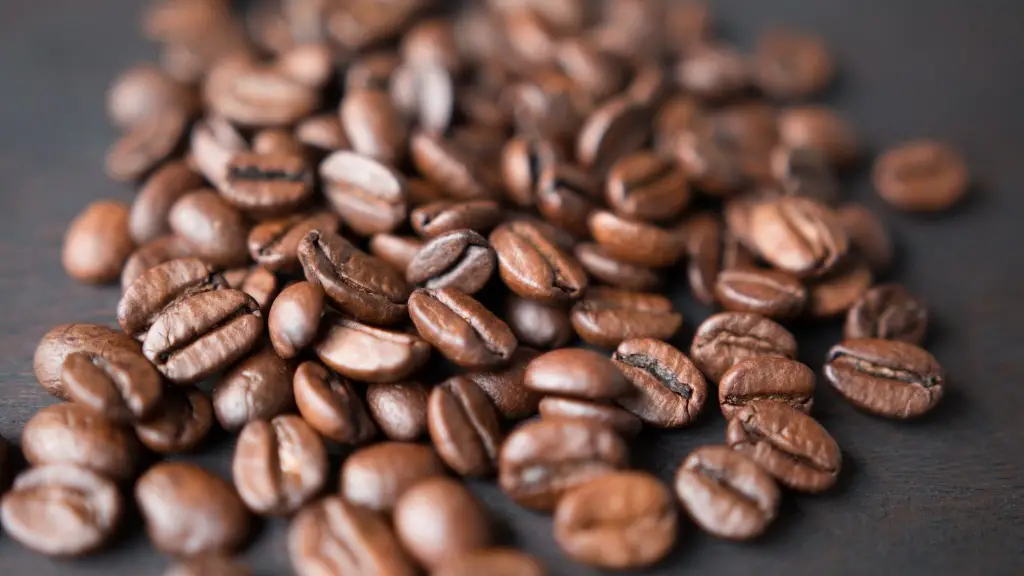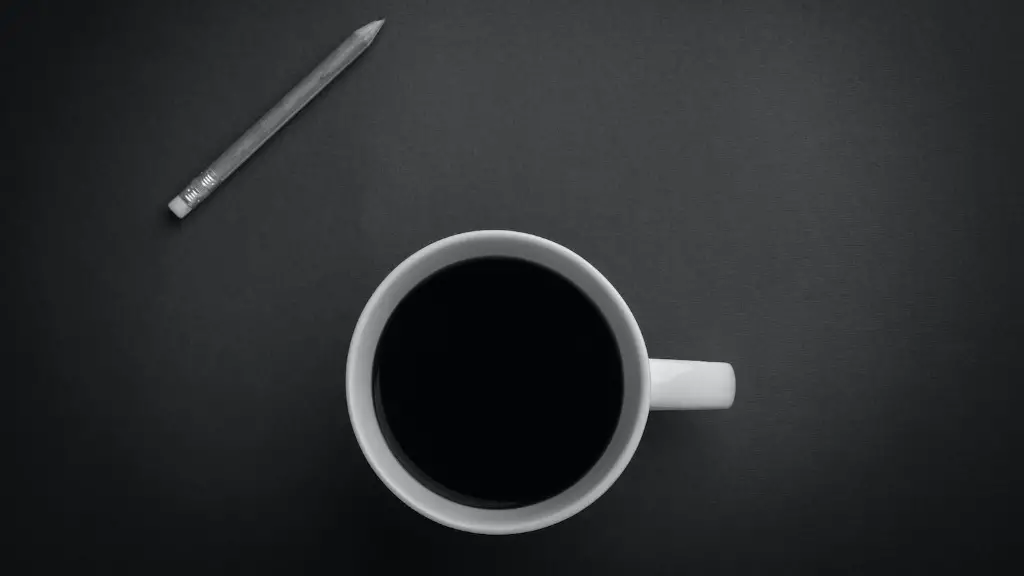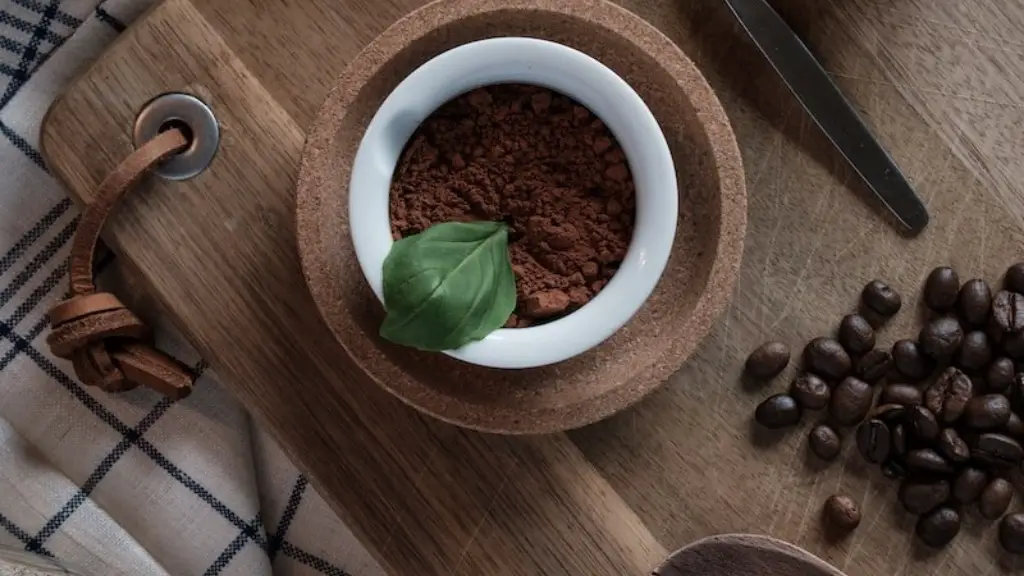We’re all familiar with the idea of having a cup of coffee to wake us up, but why do some people get sleepy after drinking coffee? It’s a perplexing issue that many of us have grappled with, as we search for an explanation that makes sense.
Caffeine works by interacting with the brain’s chemistry and blocking the action of adenosine. Adenosine is a molecule that signals tiredness to the brain and builds up in our bodies as the day goes on. Caffeine binds to the adenosine receptors, stopping them from functioning, and this temporarily reduces our feelings of tiredness and gives us a boost of alertness. So, it makes sense that caffeine should help us to stay awake, but why does it sometimes backfire?
Anecdotal evidence suggests that a key factor may be down to individual tolerance levels. Some people may be more susceptible to the effects of caffeine than others; depending on age, genetics, activity levels and other individual factors. Research has also found that tolerance levels can be lowered if we don’t consume it regularly, so if we drink only small amounts of coffee over a longer period of time, this can lead to a heightened sensitivity to caffeine when drinks are suddenly consumed in higher quantities.
It could also be argued that drinking coffee at the wrong time of day can be to blame. Consuming caffeine when our natural energy levels are low can cause depletion of neurotransmitters such as dopamine, as this is triggered when caffeine wears off. This is known as ‘Caffeinism’ and is characterized by feelings of anxiety, irritability and dizziness, as well as fatigue.
Also, many people like to add milk and sugar to their coffee, and these can affect our body’s reaction. Milk and sugar can slow down the absorption of caffeine and blunt the effects, meaning we might not feel energized as quickly as we should. This is why it is often advised to opt for black coffee when trying to reap the benefits.
Nutritionist Dr Lisa Kennedy also points out that coffee can be dehydrating, so it is important to consume it alongside other beverages that have a hydrating effect. She says this will help to offset any potential effects of drowsiness. Additionally, consuming coffee alongside a snack that contains simple carbohydrates and protein can help to give us sustained energy throughout the day, as those foods contain essential vitamins and minerals.
Effectiveness of coffee on Mood
After some research on coffee, there is no denying that caffeine has an effect on mood suppression. Caffeine can, depending on the individual’s coffee intake, stimulate feelings of happiness and alertness. People who consume coffee can experience an increase in mental stimulation due to the caffeine content, resulting in improved concentration and alertness. Caffeine has been found to have some anti-depressive effects on people who suffer from severe depression. There are also studies that suggest caffeine can help reduce symptoms of anxiety
Some research has shown that the stimulant action of caffeine can help to improve the effectiveness of antidepressant medications. It was found that those who consume caffeine can benefit particularly from the combined effects of caffeine’s stimulation with the antidepressant’s effects, resulting in an even greater improvement in depression and anxiety.
However, it is important to note that, for some, the positive effects of caffeine might not be felt initially. Studies have also found that if caffeine is consumed for an extended period of time, the effects of it can wane and become less noticeable. After some time, people tend to develop tolerance levels to caffeine, meaning that its effects are felt less over time.
Therefore, if one wants to experience the positive aspects of the stimulant for a sustained period, it is recommended to consume it in moderation. Take a break from consuming caffeine every now and then, so that one can stay alert and remain sensitive to the effects of it. It is also advised to limit caffeine intake to one or two cups of coffee each day.
Combining Coffee and Exercise
One way to enhance the effects of coffee is to consume it alongside physical activity. A considerable number of studies have revealed that combining coffee consumption with exercising can produce better results than consuming them alone. Caffeine consumption can aid in increasing physical performance, particularly during endurance-based activities.
Research found that consuming caffeine triggers the release of adrenaline and noradrenaline, two hormones that play a role in increasing the body’s energy levels. Simultaneously, physical activity is responsible for increasing the energy levels in our bodies and can help speed up the metabolism. Together, these two effects can work in synergy to give our bodies more energy and may also help to reduce feelings of fatigue. Combining coffee and exercise may also ultimately improve our overall performance.
In addition to improving physical performance, combining coffee and exercise can also boost mood. Exercise triggers the release of endorphins, which are hormones that make us feel good. Caffeine can also help to enhance the effects of these endorphins and produce a feeling of pleasure. Combining exercise and coffee consumption can therefore be a great way to stay energized and happy.
It is important to note, however, that it is important to stay within reasonable limits when it comes to caffeine consumption. Typically, drinking no more than one or two cups of coffee per day is the recommended amount. Consuming too much can lead to anxiety and other health problems, so it is important to practice moderation.
Coffee and Sleep Habits
The consumption of coffee can also affect our sleep habits. It’s well known that caffeine affects our body in many ways and can alter our alertness and energy levels. This is why it is usually recommended to refrain from drinking coffee after midday, so as to avoid interfering with our natural sleep cycles.
Studies suggest that consuming coffee in the afternoon or evening can lead to difficulty falling asleep. This difficulty can manifest itself in many ways, from feeling restless or agitated to simply not feeling tired. In addition to this, it can also lead to disrupted sleeping patterns, such as waking up frequently during the night.
Not getting enough sleep can have a huge impact on our wellbeing and can lead to all sorts of health problems, so it’s important to be aware of the effects of coffee on our sleep. If one is going to drink coffee later in the day, it’s recommended to reduce the amount consumed. Additionally, adding milk and sugar to coffee can help to reduce its effects, as these can slow down the absorption of the caffeine.
The Bottom Line
So, why do some people get sleepy after drinking coffee? There are a variety of factors that could be to blame, from individual sensitivity levels and tolerance to caffeine, to drinking too much coffee and combining it with other beverages or food. It is important to be aware of our individual tolerance levels and to keep an eye on how much caffeine we are consuming.
It is also important to remember that combining caffeine with exercise or physical activity can enhance its effects and make it more effective. However, it’s important to stay within reasonable limits and remember to drink plenty of water to keep hydrated. Lastly, it’s also important to be aware of the effects of caffeine on our sleep habits and to avoid consuming too much coffee in the afternoon or evening.




